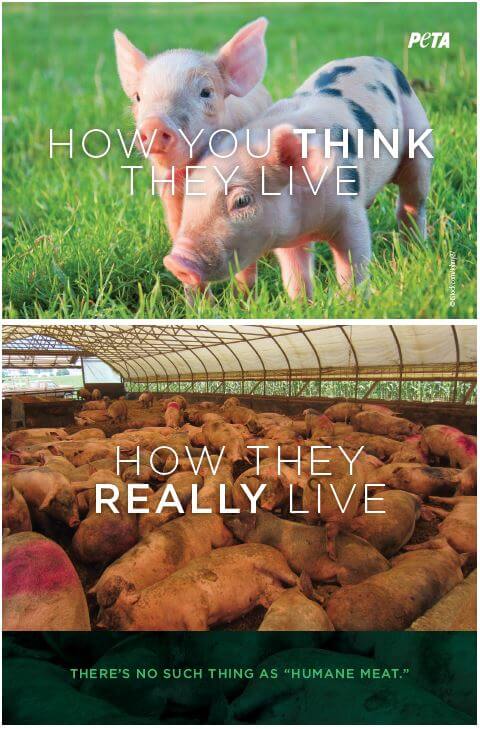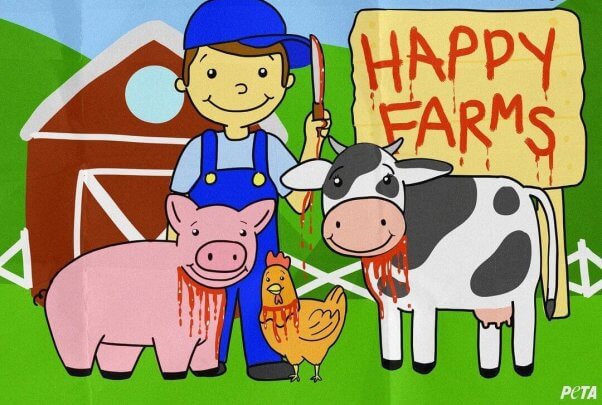Is PETA Propaganda? Here’s What Animal-Exploiting Industries Don’t Want You to Know
Is PETA propaganda? Well, what’s really propaganda? Claims by farmers that their animals are “happy” when, in fact, they’re being exploited and killed for eggs, milk, and meat or PETA’s exposure of conditions on factory farms and the way workers actually treat animals used for food?

PETA delivers facts about the many ways animals suffer when humans exploit them and how industries take advantage of consumers with misleading information. Many commercial farming operations will simply slap labels touting compassion on the same cruelly obtained products that they’ve sold for decades—and then upcharge those who buy the items. This ridiculous and unethical practice is known as “humane washing.” It’s a marketing ploy designed to convince consumers that they’re making kind choices when they’re actually not.
It’s not “propaganda” to point out that slaughterhouse workers kill more than 29 million cows in the meat and dairy industries annually or to note that in the U.S. alone, workers kill approximately 9 billion chickens for their flesh and exploit 305 million hens for their eggs each year.
An additional 200 million day-old male chicks are ground up alive each year by the egg industry, because they’re considered “useless” in terms of profit, since they don’t produce eggs and aren’t large enough to be used for their flesh. This relentless killing occurs in the egg industry, even if a company’s eggs are labeled “free-range” or “cage-free.” All eggs come from chickens hatched at facilities that kill day-old male chicks, and all of them are raised on farms that exploit their mothers and sisters for their reproductive parts.

Social chickens like to spend their days together, scratching for food, taking dust baths, roosting in trees, and lying in the sun. However, chickens on today’s farms will never get to enjoy these activities.
Were You Duped by Deceptive Labels?
Ninety-nine percent of animals used for food in the U.S. are confined on massive industrial farms. Pigs, cows, chickens, and other animals are crammed by the thousands into wire cages, metal crates, or other restrictive enclosures, often inside foul, reeking, windowless buildings. Animals exploited for food with “humane” labels are also often subjected to cramped, filthy conditions—making it clear that there’s simply no such thing as “ethical” meat, eggs, milk, or anything else that’s taken from an animal.
If you’ve purchased “free-range,” “grass-fed,” or “cage-free” meat, eggs, or dairy products because you believed that these terms meant the animals were treated better than their cheaper, unlabeled counterparts, you were probably duped by deceptive labels. Please contact PETA today.

